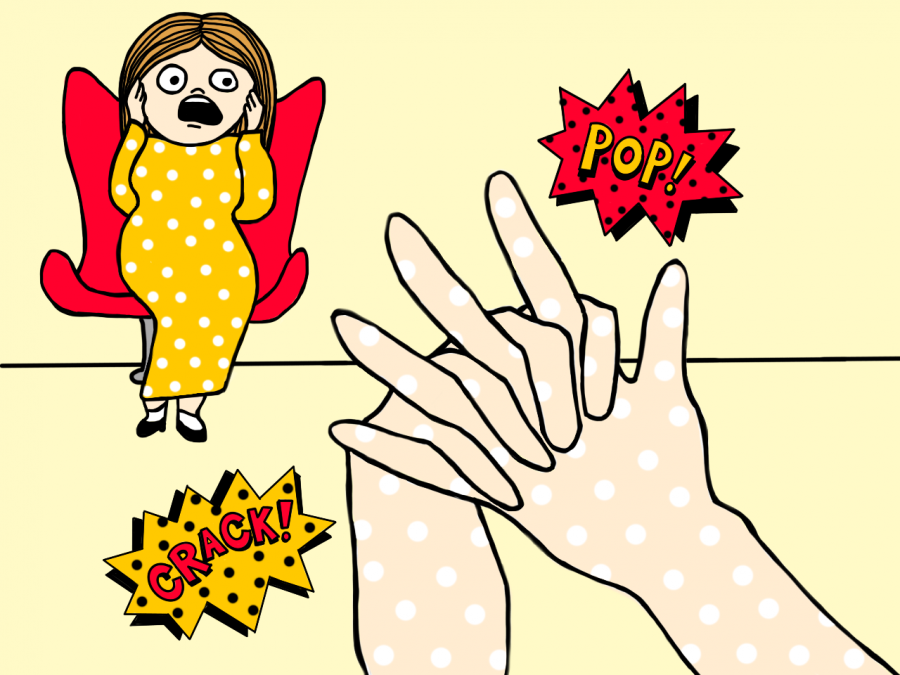The Deal with Cracking Your Knuckles
May 18, 2018
For as long as I remember, I’ve been cracking my knuckles. Before taking a test, before going to sleep, while I’m in class, basically anywhere and everywhere, I would crack my knuckles. Once the thought of cracking my knuckles enters my head, there is no way to get rid of it except for actually cracking them. Since the start of my knuckle-cracking habits, I’ve even evolved to cracking my toe knuckles, elbow joints, neck, and hand joints.
Why do I love cracking my knuckles so much? In my mind, knuckle-cracking is the same as stretching. My hands, arms, and feet feel looser after cracking, and a wave of tensions is lost in the process. Knuckle-cracking is almost like a stress reliever to me. Moreover, the sound of the crack is the best form of ASMR to me. This sound, according to Dr. Rachel Vreeman, assistant professor of pediatrics at Indiana University School of Medicine, is the popping of “synovial fluid vapor cavities—or gas bubbles—in the fluid around your joints”. Dr. Ryan Curda, a San Diego-based chiropractor explained that “cracking the knuckles gives your fingers and joints a stretch to relieve” the pressure that builds up throughout the day.
Why do I feel the need to crack my knuckles more than some of my other fellow knuckle-crackers? I wondered whether my hobbies that required hand and feet movement, such as playing piano, drawing and painting, and writing, had some influence on my knuckle-cracking. Dr. Curda confirmed my speculations, saying that people who use “their hands and fingers regularly during the day” will “feel the need more often”. Acquiring all this info, I felt the puzzle pieces line up. My community of knuckle-crackers included my friend who is an artist, another whose favorite hobby is writing, and one last one who spends all day vigorously typing on her computer.
Are the rumors true? Does knuckle-cracking really have negative impacts? What I’ve been told by many people is that knuckle-cracking can cause arthritis. I was terrified even more when my dance teacher told me that there is no doubt I’ll have arthritis in the future, after one look at my feet. My mom has also constantly told me that the reason my fingers look so bulky is that I crack my knuckles. According to Harvard Health, “the conclusion of several studies that compared rates of hand arthritis among habitual knuckle-crackers and people who didn’t crack their knuckles” is that cracking your knuckles “probably won’t raise your risk for arthritis”. However, Harvard Health claims that knuckle-cracking should still be a habit to lose because it can cause “swollen hands and reduced grip strength”.
Why is the habit so hard to break? I’ve tried multiple times to stop cracking my knuckles. However, even a day without cracking my knuckles is hard to endure. Like any other habit, it takes about 21 days to form, so forming a habit of not cracking knuckles would take complete dedication to the goal for 21 whole days. There is no formal knuckle-cracking support group, but Dr. Curda offers some tips, including “hand, wrist, and forearm stretches.”
Knuckle-cracking is an unusual habit, and the science behind it fascinating. If you are a fellow knuckle-cracker, I hope this has helped you!


John • Nov 28, 2023 at 6:33 PM
A little secret – “that’ll cause arthritis” is people’s way of saying they can’t stand the noise and would like you not to do it.